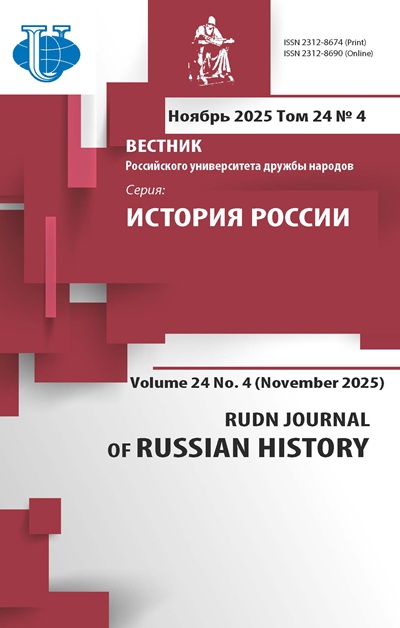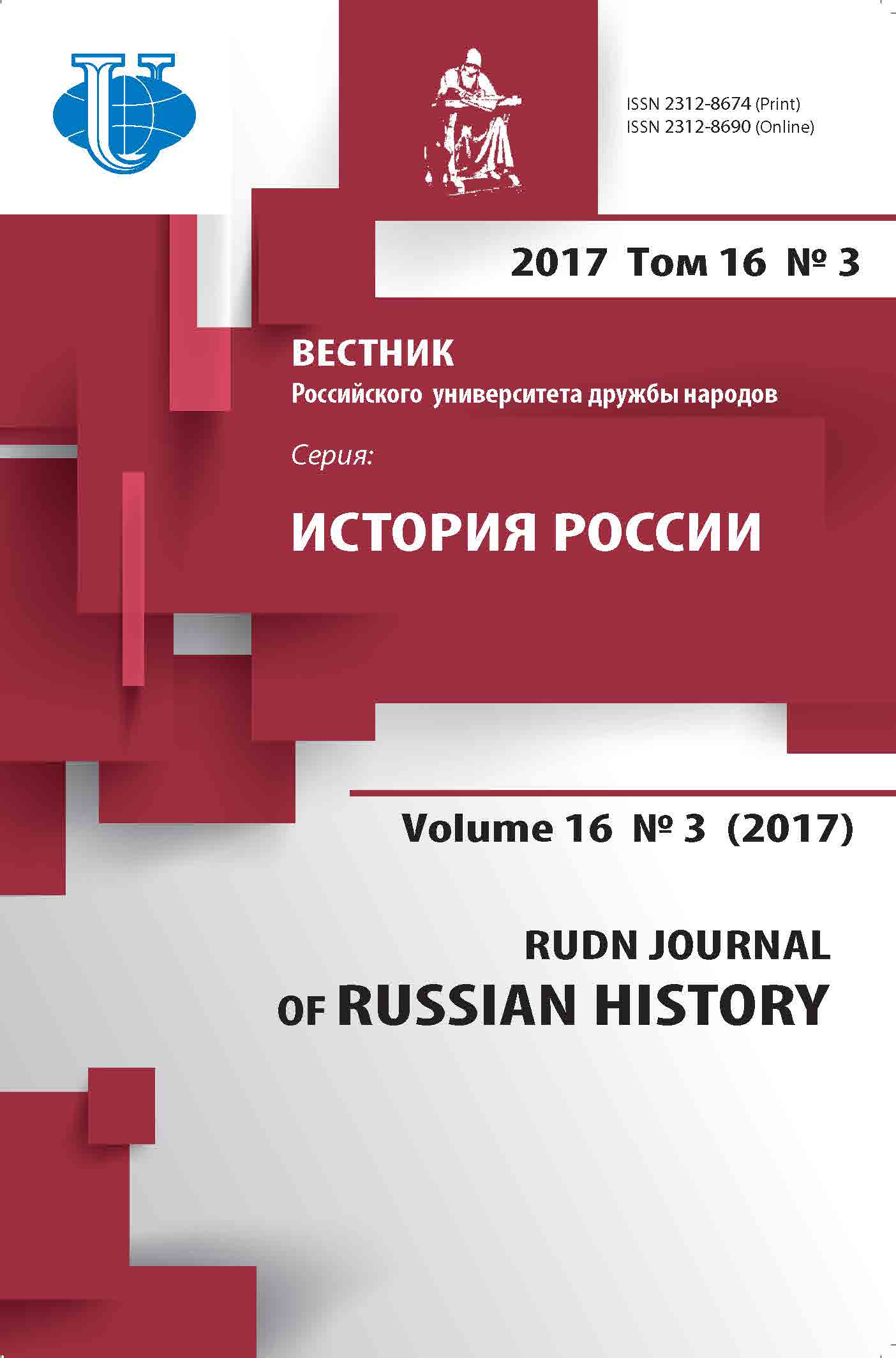NIGERIA - RUSSIA BILATERAL RELATIONS: PROBLEMS AND PROSPECTS
- Authors: Adetokunbo A.1
-
Affiliations:
- University of Ibadan
- Issue: Vol 16, No 3 (2017)
- Pages: 477-490
- Section: INTERNATIONAL CONTACTS AND RELATIONS OF RUSSIA
- URL: https://journals.rudn.ru/russian-history/article/view/16898
- DOI: https://doi.org/10.22363/2312-8674-2017-16-3-477-490
- ID: 16898
Cite item
Full text / tables, figures
Abstract
In diplomacy, the interests of an individual nation largely determine the form of relations it maintains with other states. This gives credence to the notion that there is neither a permanent friend nor permanent enemy in international relations; rather, it is interests of a country which is permanent. In the pursuance of their national interests, diplomatic relations between Lagos and Moscow were formally established on November 25, 1960 soon after Nigeria’s gaining in-dependence. The embassy of the Soviet Union was established in Lagos in 1961, while Nigeria established its embassy in Moscow in 1962. On December 26, 1991 the Soviet upper chamber under the chairmanship of A. Alim-shanov (Declaration № 142-H) decided to discontinue the Soviet Union existence as a state. This was in line with the outcome of the meeting of December 8, 1991 between Boris Yeltsin (Russia), Leonid Kravchuk (Ukraine) and Stalinislav Shushkevich (Belarus) that later came to be known as the Belovezha Accords of 1991. Russia, a prominent union republic of the for-mer Soviet Union, gained international recognition as the successor to the Soviet Union which thereafter took up both the assets and liabilities of the former Soviet Union. Nigeria-Russia Bilateral Relations (NRBR) had been developing over the years and cul-minated in the visit of Nigeria’s President, Olusegun Obasanjo to Russia in 2001 and Russian President Dmitri Medvedev’s visit to Nigeria in 2009. Undoubtedly, the NRBR has had both good and diffi cult experience. This paper is an assessment of NRBR and it provides answers to the questions of the desirability and necessity of strong Nigeria-Russia diplomatic ties. Besides, it makes recommendations on how the two countries can elevate their bilateral relations to a more functional cooperation in the key and strategic sectors.
Keywords
About the authors
Abiodun Adetokunbo
University of Ibadan
Email: tokunbonov@gmail.com
Abiodun Adetokunbo, Ph.D in Russian History, Lecturer in the Russian Unit of the Department of European Studies at University of Ibadan, Ibadan, Nigeria. Ibadan, Oyo State, Nigeria
References
- Lenin V.I: Word collections. Moscow: Gosudarstvennoe bzdatelstvo politicheskoi literatury Publ., 1963; 6 (in Russian).
- Gafurоv BG. 1960 - Africa’s year. Asia and Africa Today. 1961; (3): 34-41 (in Russian).
- Bill Vann, The New Encyclopaedia Britanica. 2002; 18.
- Obiozor George A. Africa in the Context of North-South Relation. Enugu: Our grace publishing, 2002.
- Chibundu Victor Nwaozichi, Foreign policy with particular references to Nigeria (1960-2008). Ibadan: Success press, 2008.
- The African European Interplay. A frestschrift in Honour of professor Segun Odunuga. Ibadan: Abisomo press 2006, pp. 12-19
- Odunuga Segun, East European Revolution and Nigeria’s Diplomacy. Ibadan: University of Ibadan press, 1995.
- Akinade Akinkunmi, Cultural dichotomy. Journal of culture and religion. 2001; 2 (1): 17-29.
- Agubamah E. Nigeria-Russia Relations: After and now. European scientifi c Journal. 2014; 193-201.
- Moya Afrika. Moscow; 2005 (in Russian).
- Poliakov AD. A seminar paper at the Department of European Studies. Ibadan: University of Ibadan Publ., 2009.
- Kaplila Gardy. In the interests of their nations. SAGE journals. 2010; (1): 26-41.
Supplementary files















